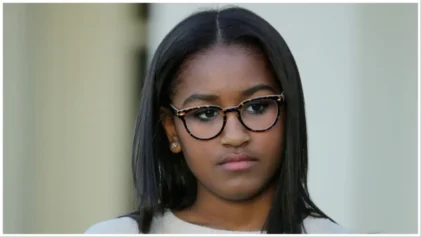From now until November, President Obama and GOP presidential candidate Mitt Romney will emphasize their differences. But the two men’s lives actually coincide in a striking number of ways. In this installment of NPR’s “Parallel Lives” series, a look at Obama’s time at their shared alma mater.
Harvard professor Laurence Tribe is a sort of legal rock star, particularly among liberals. First-year law students he has never met don’t just show up at his door saying, “I want to work for you.” At least they didn’t until March 31, 1989.
Tribe recently retrieved his daily calendar from that year and pointed to the entry for the last day in March. Just above reminders for “Haircut?” and “Write US Atty,” it says, “11 am: Barack Obama (1L),” indicating that this was a first-year law student.
“And then it has a phone number, which I guess is his dorm room,” Tribe pointed out, “and there’s an exclamation point next to it.”
That was to remind Tribe how impressed he was by this skinny kid in jeans, a sweatshirt and an afro.
Obama’s Harvard Law School education set him on a path to national prominence. And although likely Republican presidential nominee Mitt Romney sometimes attacks Obama for having “spent too much time at Harvard,” the school is one thing the men have in common.
Obama arrived on the law school campus 20 years after Romney earned a joint degree from the law school and the business school.
Like Romney, Obama was older than the typical student. While Romney spent time as a Mormon missionary in France before Harvard, Obama worked as a community organizer in Chicago. When Obama arrived on campus, Tribe says it was clear that “he wanted to make a difference. He wanted to learn how the system worked.”
Finding Common Ground
Their first conversation lasted hours, and Obama went on to work for Tribe on articles and books, including one called Abortion: The Clash of Absolutes.
Tribe recalls that his research assistant tried to find a way out of deeply entrenched lines of the abortion debate, focusing instead on education and access to birth control. “It’s as though he was looking not just for a point in the middle of a spectrum, but for a line that was perpendicular, so that one could get outside the tragic choice.”
The two have remained close, with Tribe serving as a mentor and informal adviser to the president over the years.
Professor Charles Ogletree plays a similar role in Obama’s life. In 1989, Ogletree taught a non-credit Saturday course to give first-year students a basic set of skills in law school.
Ogletree remembers the student who always arrived on time, sat in the front row, and was professorial almost to a fault. After answering the question, Obama would say, “But Al, who talked earlier, had a very good point when he said X. And Sarah, I think she really captured it when she said Y. And if you think about Latoya, her analysis was …” at which point Ogletree would interject, “Barack, I’m teaching this class, not you!”
That might sound like the arrogance Obama is sometimes accused of, but to Ogletree it sounded like this student was trying to bring everyone into the conversation.
Bridge-Builder And Trash Talker
Even then, classmate Ken Mack recalls, Obama stood apart. Mack is now a professor at Harvard Law School and author of the book Representing the Race: The Creation of the Civil Rights Lawyer.
“He seemed to know who he was, be very grounded,” says Mack. There was no sign of the kid people used to call “Barry.”
“If you would’ve told me that someone had called him Barry, I would have been surprised. Barry is a little bit diminutive — that would not have fit him at all,” Mack says.
After class on the basketball court, a whole different personality emerged. The conciliating bridge-builder was replaced by the trash-talker with a left-handed jump shot.
Obama played every chance he could get, including on the black law students’ association team.
Read the rest of this story on the NPR


